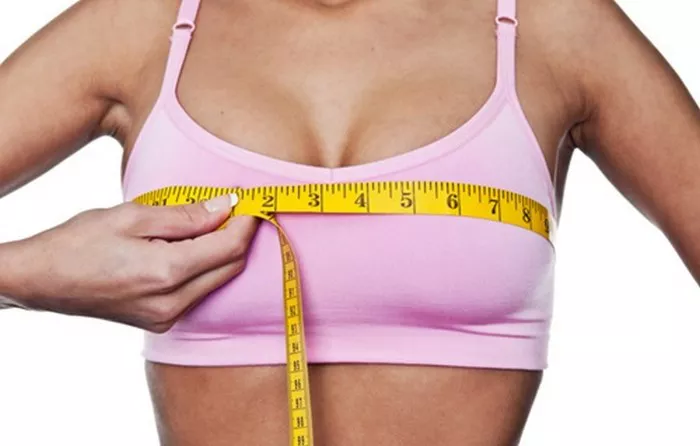Breast implants are a popular cosmetic surgery procedure that can enhance the size and shape of a woman’s breasts. While many women are interested in breast implants, some may wonder if there is a certain weight requirement for the procedure. In this article, we will explore the factors that determine whether or not a woman is a good candidate for breast implants, including weight.
Factors That Determine Candidacy for Breast Implants
There are several factors that determine whether or not a woman is a good candidate for breast implants. These factors include age, overall health, breast size and shape, and personal goals and expectations.
Age: Women who are at least 18 years old are generally considered good candidates for breast implants. However, some plastic surgeons may require women to be at least 22 years old before undergoing the procedure.
Overall Health: Women who are in good overall health are typically good candidates for breast implants. This means that they do not have any medical conditions that could increase the risk of complications during or after the procedure.
Breast Size and Shape: Women who have small or asymmetrical breasts may be good candidates for breast implants. Additionally, women who have lost breast volume due to pregnancy or weight loss may also benefit from the procedure.
Personal Goals and Expectations: Women who have realistic expectations for the outcome of the procedure and who are undergoing the surgery for their own personal reasons are good candidates for breast implants.
Weight and Breast Implants
While weight is not necessarily a determining factor for candidacy for breast implants, it can play a role in the procedure. Women who are significantly overweight may be at a higher risk for complications during and after the surgery. Additionally, women who are overweight may not achieve the desired results from the procedure.
It is important to note, however, that being overweight does not automatically disqualify a woman from undergoing the procedure. Each woman’s case is unique, and a plastic surgeon will evaluate her individual situation to determine whether or not she is a good candidate for breast implants.
The Importance of BMI
Body mass index (BMI) is a measurement of body fat based on height and weight. It is an important factor that plastic surgeons consider when evaluating a woman’s candidacy for breast implants. A BMI of 18.5 to 24.9 is considered normal, while a BMI of 25 to 29.9 is considered overweight. A BMI of 30 or higher is considered obese.
Women who have a BMI of 30 or higher may be at a higher risk for complications during and after breast implant surgery. These complications can include infection, bleeding, and delayed healing. Additionally, women who are obese may not achieve the desired results from the procedure.
It is important for women to maintain a healthy BMI before and after breast implant surgery. This can help to ensure a safe and successful procedure, as well as optimal results.
Other Factors to Consider
In addition to weight and BMI, there are several other factors that women should consider when deciding whether or not to undergo breast implant surgery. These factors include the type of implant, the size of the implant, and the placement of the implant.
Type of Implant: There are two main types of breast implants: saline and silicone. Saline implants are filled with a sterile saline solution, while silicone implants are filled with a silicone gel. Women should discuss the pros and cons of each type of implant with their plastic surgeon to determine which is best for their individual situation.
Size of Implant: The size of the implant is an important consideration when undergoing breast implant surgery. Women should choose a size that is in proportion to their body and that will help them achieve their desired outcome.
Placement of Implant: The placement of the implant is another important consideration. Implants can be placed either above or below the chest muscle, and the placement will depend on several factors, including the woman’s anatomy and personal preferences.
Preparing for Breast Implant Surgery
Before undergoing breast implant surgery, women should take several steps to prepare for the procedure. These steps can include:
Choosing a qualified plastic surgeon: It is important to choose a plastic surgeon who is board-certified and has experience performing breast implant surgery.
Discussing goals and expectations: Women should discuss their goals and expectations for the procedure with their plastic surgeon. This can help to ensure that they achieve the desired results.
Quitting smoking: Smoking can increase the risk of complications during and after surgery. Women should quit smoking at least two weeks before the procedure.
Avoiding certain medications: Women should avoid taking certain medications, such as aspirin and ibuprofen, for two weeks before the procedure.
Arranging for aftercare: Women should arrange for someone to drive them home after the procedure and should have someone to help them with daily activities for the first few days after surgery.
Conclusion
In conclusion, there is no specific weight requirement for breast implants. However, weight and BMI can play a role in the procedure, and women who are significantly overweight may be at a higher risk for complications and may not achieve the desired results from the procedure. Ultimately, the decision to undergo breast implant surgery should be based on a woman’s individual situation, including her goals, expectations, and overall health. Women should discuss the pros and cons of the procedure with a qualified plastic surgeon to determine whether or not it is right for them. Additionally, women should take steps to prepare for the procedure and maintain a healthy BMI before and after surgery.


